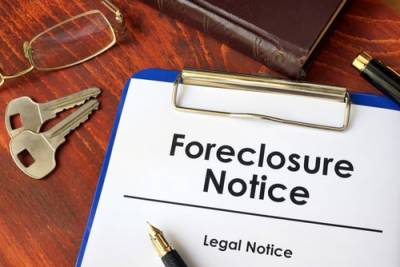Can Bankruptcy Help Prevent a Home Foreclosure?

Homeownership can be very rewarding, and a home is often one of the best financial investments an individual or married couple can make. Unfortunately, a family can encounter financial setbacks that may affect their ability to make ongoing mortgage payments. Defaulting on a mortgage may put a homeowner at risk of foreclosure, and in addition to potential financial losses, they may be concerned about their family's ability to continue living in their home. However, there are options available for homeowners who are facing these difficult situations. Filing for bankruptcy is one such option, and it can provide a family with some much-needed protection from creditors while providing them with options that will allow them to maintain ownership of their home.
Understanding Bankruptcy
Bankruptcy is a legal process in which an individual or married couple declares that they are unable to pay back their debts. Depending on the type of bankruptcy filed, a debtor may be able to completely eliminate some or all of their debts, or their debts may be reorganized to ensure that they can make affordable ongoing payments.
One of the key benefits of filing for bankruptcy is that it will place an automatic stay on creditors, preventing them from taking actions to collect debts. For debtors who are facing the threat of foreclosure, the automatic stay can provide them with time to determine how to address their debts and become current on mortgage payments. Even if foreclosure proceedings have already been initiated, the automatic stay will force a lender to stop this process while the bankruptcy case is ongoing.
Options for Preventing Foreclosure
Homeowners have a few different options when filing for bankruptcy, and the type of bankruptcy they file may depend on the types of debts they owe, the extent of the assets they own, and the amount of income they earn. In some cases, Chapter 7 bankruptcy may be an option. This type of bankruptcy will allow certain types of debts to be discharged, and the debtor will not be responsible for repaying the amounts owed. However, a person must pass a means test to qualify for Chapter 7, and they may be required to give up some of the assets they own. Exemptions will apply, and in Texas, the exempt property includes a family's "homestead," or the full amount of equity they own in their home. If Chapter 7 will allow a debtor to eliminate other debts and make up any past-due mortgage payments, they may be able to maintain ownership of their home.
While Chapter 7 may be used in some foreclosure cases, Chapter 13 bankruptcy is used more commonly in these situations. In a Chapter 13 case, debts will be reorganized into a repayment plan that will typically last for five years. During this repayment period, the debtor is required to make monthly payments to their creditors, as well as ongoing mortgage payments. Any past-due mortgage payments may be included in the repayment plan, allowing them to be paid off over time rather than all at once. Once all payments have been made under the repayment plan, other types of debts may be discharged, and the debtor will be able to continue making mortgage payments while addressing other financial needs.
Contact Our Arlington Foreclosure Defense Attorneys
Home foreclosure is an unfortunate reality for many people, but if you are facing this situation, it is important to understand that there are options available. Bankruptcy could give you additional time to address your financial issues and eliminate certain debts. You may also be able to negotiate loan modifications or refinancing in certain situations. At Acker Warren P.C., our Wise County foreclosure lawyers can help you determine the best approach to take as you defend against foreclosure, and we will work to ensure that you will be able to maintain ownership of your home. Contact us at 817-752-9033 to set up your complimentary consultation.
Sources:
https://www.creditkarma.com/advice/i/chapter-13-bankruptcy-foreclosure
https://www.investopedia.com/articles/pf/07/avoid_foreclosure.asp









